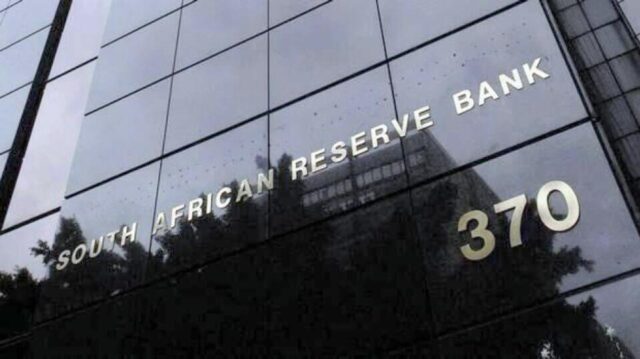Economists have remained divided on whether the South African Reserve Bank will increase or leave unchanged its benchmark lending rate again on Thursday after 10 consecutive hikes since November 2021.
ECONOMISTS have remained divided on whether the South African Reserve Bank (SARB) will increase or leave unchanged its benchmark lending rate again on Thursday after 10 consecutive hikes since November 2021.
However, the prevailing sentiment in the markets is that the SARB is now set to start tapering its monetary policy as inflation has begun slowing towards the bank’s target range of 3% to 6%.
Headline consumer inflation fell by more than market expectations to a one-year low of 6.3% in May, after easing only slightly to 6.8% in April from 7.1% in March.
Inflation has also cooled for the 12th consecutive month in the US, moving to 3% in June from 4% in May, leading to the Federal Reserve (Fed) to leave rates unchanged at 5.1%.
However, SARB Governor Lesetja Kganyago has recently given a strong indication of further rate hikes as the bank’s Monetary Policy Committee (MPC) was aiming to lower inflation to the 4.5% midpoint of the target band.
Kganyago had warned in May that the current repurchase rate level policy had become restrictive after the MPC unanimously increased the repurchase rate by 50 basis points to 8.25% per year, taking the prime lending rate to its highest in 14 years at 11.75%.
Nedbank chief economist Nicky Weimar said that they expected the downward trend in headline inflation to intensify during the second half of the year as most of the upside risks to the inflation outlook flagged by the MPC at the May policy meeting had eased.
Weimar said strong base effects, lower global food, oil and other commodity prices combined with much weaker domestic demand would likely offset the impact of a volatile rand and persistent load shedding.
Despite these hopeful developments, Weimar said a vulnerable rand and the likely return of more severe load-shedding remained the key upside risks to the inflation outlook.
“We have pencilled in one last hike of 25 basis points in this cycle. Although we still believe that the SARB has done enough to tame inflation and facilitate a sustainable decline towards the target range, we suspect that the MPC will err on the side of caution.
“In our opinion, the recent rise in inflation expectations, the threat of renewed severe load shedding, and the rand’s extreme vulnerability against the backdrop of the Fed’s hawkish rhetoric will set the tone for next week’s decision.
“It is also possible that the SARB would argue that the damage of pausing too soon is much greater than the cost of over-tightening. Too restrictive policy can easily be reversed, while structurally higher inflation and persistently rising inflation expectations will require even greater economic sacrifices to rectify.”
If the MPC hikes by another 25 basis points, monetary policy will become highly restrictive, with the prime lending rate jumping to 12% per annum.
This will mean more pain for already struggling households with bond repayments and vehicle instalments as the cost of living has remained elevated since Russia invaded Ukraine in February 2022.
Investec economist Lara Hodes was of the view that the SARB would keep rates unchanged at this week’s meeting
Hodes said they expected the headline reading to have eased notably to around 5.4% year-on-year in June, supported by a deceleration in food price inflation, which has proved sticky previously, despite a persistent decline in global agricultural commodity prices.
“We expect the MPC to keep rates unchanged at 8.25%, following the Fed’s pause at its June meeting,” Hodes said.
“The SARB’s decision will be supported by an easing in the domestic consumer price inflation outlook, towards the midpoint of the inflation targeting band of 4.5%.”
Property experts have warned that if the rate is hiked again as expected – the 11th consecutive hike in recent months – it would impact both homeowners and tenants negatively.
FNB chief economist Mamello Matikinca-Ngwenya said the end of the hiking cycle had been difficult to predict as global inflation was only expected to fall closer to pre-pandemic levels in 2025.
Matikinca-Ngwenya said a shorter outlook for interest rate hikes in the US had weighed on the dollar and supported a less undervalued rand, which had also recovered from the diplomacy fallout in May.
“Nevertheless, we anticipate that interest rates will be hiked by a final 25 basis points at this meeting, catering for sustained upward inflation and funding risks,” she said.
“The MPC may decide to pause its hiking cycle, taking stock of inflation that will likely fall within the target band in June, US inflation that has fallen closer to target, and an exchange rate that has improved since the previous meeting.
“Another low-conviction call places us, and many consumers, on the edge of our seats.”
– BUSINESS REPORT








